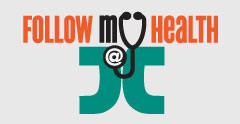Author
Dee, Sandra V. M.D.
Love Your Heart
Love Your Heart
February is the month for celebrating Valentine’s Day, a time when we give gifts to people who are close to our hearts. What better way to celebrate the month of the heart than to remind ourselves, as women, that we should take our health to heart.
Most women are too busy caring for their families or preoccupied with their jobs to stop and think about their own health. Heart disease is the number one killer among women, affecting 500,000 each year. Six times more women die of heart disease than of breast cancer. Early detection of Coronary Artery Disease (CAD) is vital to women’s health.
How Heart Disease Differs Between Men & Women
Coronary Artery Disease is caused by atherosclerosis – hardening of the arteries due to the deposit of fatty plaques. CAD presents differently between men and women. The most common is pain or pressure across the chest, brought on by exertion and relieved with rest. Symptoms vary among women and could present as vague chest tightness, neck, arm or jaw pain, shortness of breath, fatigue, dizziness or indigestion. Most women don’t present with the classic “Hollywood heart attack” and are more likely to be misdiagnosed.
Know Your Risk for Coronary Artery Disease (CAD)
There are modifiable and non-modifiable factors that determine your risk for heart disease. Factors we can’t control include age, gender and our family history. As we get older, the risk of developing medical conditions increases and loss of estrogen contributes to higher risk for heart disease after menopause. A family history that includes parents having a heart attack under 60 years of age increases the risk for heart disease. Modifiable risk factors for coronary artery disease are those that we can help control. These include: hypertension, diabetes, high cholesterol, smoking and obesity.
How to Prevent Heart Disease
As the saying goes, “an ounce of prevention is better than a pound of cure.” The importance of knowing your risk for developing heart disease cannot be overemphasized.
1. Be aware of your risk for developing heart disease
If you have high blood pressure, diabetes, kidney disease, stroke or have a family member who had a heart attack, you are at risk of having heart disease. Plan a visit to your doctor who will assess your cardiovascular risk.
2. Institute life style changes
A.Stop smoking
Once you stop smoking, your risk for heart disease drops to 50% in one year and after five years, your risk for heart disease approaches that of a non-smoker.
B. Weight loss and exercise
Maintain your ideal body weight and engage in moderately intense activity at least 30 minutes a day.
C. Healthy eating habits
Be aware of the calories you consume daily. Watch your salt and fat intake and read the labels in food products. Diets rich in fruits and vegetables and low in salt and cholesterol help prevent heart disease.
3. Lower your cholesterol
The treatment for lowering cholesterol levels start with life style changes, but those with other conditions like diabetes may need medications as well.
4. Maintain optimal blood pressure
High blood pressure is a silent killer. The only way to find out if you have hypertension is to have your blood pressure measured. A healthy lifestyle can help prevent hypertension, but medications may be needed for better control. New guidelines published December, 2013 in the Journal of American Medical Association recommends treating adults aged 60+ if their BP exceeds 150/90 and for patients under 60, treatment is recommended for BP that exceeds 140/90.
5. Good control of blood sugar
Check your sugar level regularly and keep your HgbA1C level at less than 7%. Hgb A1C is a blood test that measures how well your sugar is being controlled.
6. Have a regular check up
For women at risk for heart disease, it is vital to schedule regular visits to your family physician. Your doctor will discuss your risks, perform evaluations and assess your likelihood for heart disease. The fight against heart disease is an on-going battle for everyone. We all need to spread the news about heart disease and encourage others to share in our passion for life.

